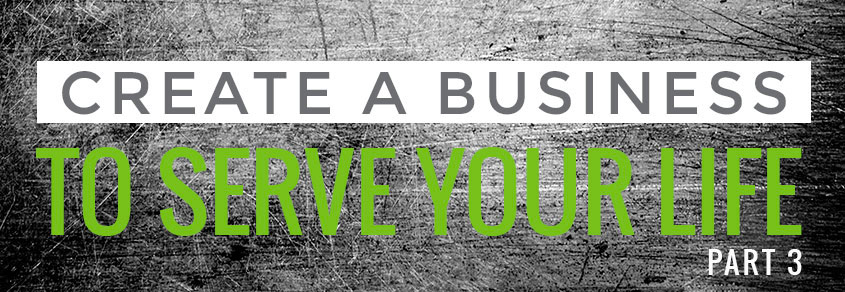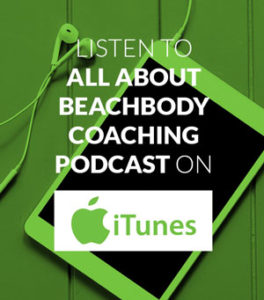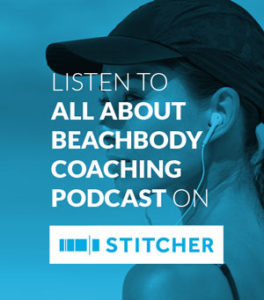
EP06 Create a Business to Serve your Life – Part 3
The final component of creating a business to serve your life is to fully understand eleven business elements in addition to the lifestyle considerations, and how they pertain to each of the seven small business models.
In parts one and two of this three-part series we discussed the power of passive income and how it allows you to do what you want, with who you want, when you want; financial freedom! Passive is income received on a regular basis with little effort required to maintain it. We discussed the four different types of business models (big business, investor, sole proprietor and small business owner) and the seven different types of small business (sole proprietor, traditional small business, franchise, affiliate, network marketing, content creator, and real estate). In part two we closely examined the type of lifestyle and commitment associated with each of the seven different types of small business.
The final component of creating a business to serve your life is to fully understand eleven business elements in addition to the lifestyle considerations, and how they pertain to each of the seven small business models.
Step #5 Understand the Eleven Hugely Important Small Business Factors to Consider
LEGAL: This is not a place to cut costs in your business. It is critical that you are covered legally in your business. There are so many stories of successful small business owners getting into hot water due to legal issues.
The FRANCHISE and NETWORK MARKETING provide the best legal coverage of all the types of small businesses because most legal issues are handled by the parent company. This is incredibly helpful in terms of both costs and the overwhelming nature of legal considerations.
For SOLE PROPRIETOR, TRADITIONAL SMALL BUSINESS, AFFILIATE, CONTENT CREATOR and REAL ESTATE all of the legal factors are your responsibility. For these business models you need to hire a lawyer to make sure you are operating in accordance with local, state and national legal parameters.
Legal
Sole Proprietor:
· Legal Owner Responsibility = YES
· Level of Legal Difficulty = HIGH
Traditional Small Business:
· Legal Owner Responsibility = YES
· Level of Legal Difficulty = HIGH
Franchise:
· Legal Owner Responsibility = NO
· Level of Legal Difficulty = LOW
Affiliate:
· Legal Owner Responsibility = YES
· Level of Legal Difficulty = HIGH
Network Marketing:
· Legal Owner Responsibility = NO
· Level of Legal Difficulty = LOW
Content Creator:
· Legal Owner Responsibility = YES
· Level of Legal Difficulty = HIGH
Real Estate:
· Legal Owner Responsibility = YES
· Level of Legal Difficulty = HIGH
ACCOUNTING/BILLING/BOOKKEEPING: Just reading these makes me cringe! These are highly dependent on the complexity of your business. Right away you will want to get an accountant to help you, and to save you money on your taxes. Billing is very dependent on the type of business. A sole proprietor, traditional small business and franchise there is going to be billing. For an affiliate, network marketing and content creator there is no billing required. Real estate is extremely complicated and will have some billing. I recommend getting a Bookkeeper in addition to an Accountant right from the start. The Bookkeeper can also do your billing.
Accounting/Billing/Bookkeeping:
Sole Proprietor:
· Accounting Required = YES
· Billing Required = YES
· Bookkeeping Required = YES
Traditional Small Business:
· Accounting Required = YES
· Billing Required = YES
· Bookkeeping Required = YES
Franchise:
· Accounting Required = YES
· Billing Required = YES
· Bookkeeping Required = YES
Affiliate:
· Accounting Required = YES
· Billing Required = NO
· Bookkeeping Required = YES
Network Marketing:
· Accounting Required = YES
· Billing Required = NO
· Bookkeeping Required = YES
Content Creator:
· Accounting Required = YES
· Billing Required = NO
· Bookkeeping Required = YES
Real Estate:
· Accounting Required = YES
· Billing Required = YES
· Bookkeeping Required = YES
LOANS: This is a big one…do you need a loan to start your small business. I don’t want to take a loan out for anything at this point because there is so much less risk. When you take out a loan you need to factor the repayment of the loan into your monthly expenses.
Loan Required:
Sole Proprietor = NO
· Loan Required = NO
Traditional Small Business
· Loan Required = YES
Franchise:
· Loan Required = YES
Affiliate:
· Loan Required = NO
Network Marketing:
· Loan Required = NO
Content Creator:
· Loan Required = NO
Real Estate:
· Loan Required = YES
EMPLOYEES: Are you going to need employees? Do you want employees in your business? Employees can be beneficial because the workload is shared, but there are often high time and financial costs associated with having employees.
Employees:
· Sole Proprietor = NO
· Traditional Small Business = YES
· Franchise = YES
· Affiliate = NO
· Network Marketing = NO
· Content Creator = NO
· Real Estate = NO
MARKETING: How much work is going to go into marketing your business? This area is where small business owners underestimate the amount of time and money required. Each type of small business requires marketing.
Marketing:
· Sole Proprietor = You are responsible for ALL marketing
· Traditional Small Business = You are responsible for ALL marketing
· Franchise = All marketing and branding provided
· Affiliate = Marketing is the only thing you are doing
· Network Marketing = All marketing and branding provided
· Content Creator = You are responsible for ALL marketing
· Real Estate = You are responsible for ALL marketing
HARD COSTS: The more hard costs that you have in a business the more difficult it is for you to earn a profit. Hard costs are the things that you need to buy in order to be in business.
Hard Costs (Low, Medium, High):
· Sole Proprietor = MEDIUM
· Traditional Small Business = HIGH
· Franchise = HIGH
· Affiliate = LOW (computer & a phone)
· Network Marketing LOW
· (computer & a phone)
· Content Creator LOW
· (computer & a phone)
· Real Estate MEDIUM
TAXES: This is highly dependent on the type of business that you are in, and the state where you are operating your business. Real Estate is going to have the greatest amount of tax benefits and Sole Proprietor will have the least amount of tax benefit. I’m not an expert in this area so please talk to an accountant and attorney in this area. It is important to remember that you have to pay taxes on the money that you make.
RISK/REWARD: This area is really important to look at before selecting a business model.
Risk/Reward:
Sole Proprietor:
· High Risk
· Low Reward
Traditional Small Business:
· High Risk
· Low Reward
Franchise:
· Medium Risk
· Medium Reward
Affiliate:
· Low Risk
· High Reward
Network Marketing:
· Low Risk
· High Reward
Content Creator:
· Low Risk
· High Reward
Real Estate:
· High Risk
· High Reward
COMPETITION: What are you going to be up against? What is already out there in the market? It is important to look at the competition in the market for your business model as well as for the type of business you want to start.
Competition:
· Sole Proprietor = HIGH
· Traditional Small Business = HIGH
· Franchise = HIGH
· Affiliate = HIGH/LOW (dependent on how it is set up)
· Network Marketing = LOW
· Content Creator = HIGH
· Real Estate = LOW
BREAK-EVEN: This is the point where the money you earn covers all of your expenses. The goal is to reach the break-even point in your business quickly.
Break-Even Time Frame:
· Sole Proprietor = Quickly: within 1-2 months
· Traditional Small Business = Longer-Term
· Franchise = Longer-Term
· Affiliate = Quickly: project-based
· Network Marketing = Quickly: within 1-2 months
· Content Creator = Longer-Term
· Real Estate = Longer-Term
MENTORS: In some business models you have a mentor built into the business. This mentor can help you navigate the development of your business and teach you the industry secrets and tell you what is working and what is not.
Mentors Available:
· Sole Proprietor = NO
· Traditional Small Business = NO
· Franchise = YES
· Affiliate = YES
· Network Marketing = YES #1 for Mentoring!!!
· Content Creator = NO
· Real Estate = NO
Step #6 Understand Keith’s ranking of the 7 Types of Small Businesses in order of Passive Income Potential
It is so important to remember that not all businesses are the same. All of the items that we have covered need to be considered to set your business up for success. I have ranked the 7 different types of small businesses based on the level of success and passive income that can be achieved. I have personally done all of these types of businesses, with the exception of a franchise…which I seriously considered before getting into network marketing.
1. Network Marketing
2. Franchise
3. Real Estate
4. Affiliate
5. Traditional
6. Content Creator
7. Sole Proprietor
Links:
Keith Callahan – Monthly Reports
All About Beachbody Coaching Podcast




